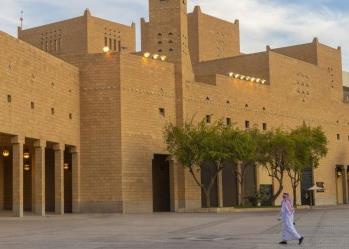
The Mashreq head says the worst is over and he is confident that a return to growth is on its way. The challenge will be in grabbing market share from the competition
For many in the banking sector, 2011 looks eerily reminiscent of 2008. Governments around the world are stepping in to stabilise the finance industry, the global economy is looking worryingly fragile and confidence is slowly ebbing away, reflected in falling stock markets.
Despite this, Abdulaziz al-Ghurair, chief executive officer of UAE bank Mashreq, is still confident that the worst is over for the UAE banking system and that better times are ahead.
“The banking sector has seen the worst,” he says. “We have survived the financial crisis, which hit the world and, of course, this region. We have been impacted and the economy has slowed down, but such a massive shock to the system forced many banks in US and Europe to be recapitalised. In the UAE, none of the banks were forced into that.”
Banking dilemma in the UAE
Although banks in the UAE were not recapitalised, the government did provide liquidity facilities and put long-term deposits into the banks to help bolster their capital adequacy ratios. As a result, the average capital adequacy ratio of the country’s banks is now 21 per cent. Al-Ghurair describes this as “way too high,” and attributes it to slow loan growth and banks hoarding capital rather than investing. He says it needs to head back down to around 14-15 per cent. “The dilemma for banks is what do we do to grow?” he says.
This year will be the last one of high provisioning … now we will be more back to normal
As one of the UAE’s largest, Al-Ghurair also has to think of its shareholders, who he says still have a lot of adjusting to do. “Three-four years ago, banks were growing at 20 per cent every year. Investors have become used to that and want to see that same growth,” he says. “But the only reason the banks were growing at that level was because the economy was growing that fast.”
Although the outlook for the UAE economy has improved since 2009-10, when growth was more modest, it is still nowhere near the pace of growth experienced before the financial crisis burst the Dubai property bubble and led to a major economic slowdown across the region.
The improving situation in the banking sector is reflected in the rapid decline in the Emirates interbank offered rate (Eibor), the rate at which banks lend to each other. In the past few years, this rate had escalated as banks were nervous about whether their counterparts would hit financial trouble, and liquidity generally in the system has improved. Now, the rate has fallen. As recently as 12 months ago the rate was about 4 per cent, but has since fallen to about 1.5 per cent. “Banks no longer have to offer high interest rates to get deposits, so the Eibor rate has fallen,” says Al-Ghurair. “The question for banks now is what to do with those deposits, as they don’t have much appetite for new lending.”
Banks allowed people to borrow 3-5 year loans with a bullet repayment. That was a disaster
Banks will only be able to grow on average by about 3-4 per cent because that is how fast the economy is growing. He is more optimistic about 2012, however, when he thinks profits in the UAE banking sector will grow by about 10-15 per cent.
This is largely because he expects the wave of provisioning in the banking system to have come to an end, meaning banks will no longer to be forced to write-off large chunks of their profits for bad loans.
Clean slate for banks
“I think provisioning peaked last year and will finish this year,” says Al-Ghurair. “Most banks will start next year with a clean slate and that will help improve profitability. The provisioning in the UAE banking system came from the impacts of the financial crisis, but some of it was also due to more restrictive regulations, so I think this year will be the last one of high provisioning requirements and now we will be more back to normal.”
The central bank said earlier in 2011 that all banks should put aside 1.5 per cent of risk-weighted assets as provisions, up from 1.25 per cent.
Where the high growth that Al-Ghurair is predicting will come from is hard to see. He admits that loan growth is flat and does not foresee any sudden changes in that. “Loan growth will be flat for as long as our customers see no opportunities for new investments,” he says. “On the corporate side, the good customers you want to lend to are not borrowing, instead they are deleveraging. They have realised that too much leverage will kill you. And the customers that are over leveraged, no one wants to lend to.”
Part of the reason for slow loan growth is not just because borrowers are more cautious, but also because banks are more wary.
“We used to justify lending to over leveraged people by saying that it would not be a problem for them to just refinance the loans,” says Al-Ghurair. “Banks allowed people to borrow three to five-year loans with a bullet repayment [repayment in full at maturity]. That was a disaster.”
With the opportunity for just refinancing obligations on an ever-declining interest rate now gone, borrowers and bankers are more cautious about the new business they do.
Lending limits for retail customers
While the lessons of the past are easy to see with hindsight, avoiding a repetition of the same mistakes is the real sign of wisdom. Al-Ghurair is adamant that more needs to be done in the UAE banking system to ensure that another lending bubble is avoided.
He applauds the central bank for its moves to limit how much banks can lend to retail customers, even though he knows it will hit profitability. In May, the central bank limited lending to 20 times a customer’s monthly salary.
“Some regulation is a good thing and I think this is a step in the right direction,” he says. “Some people say it is over-reacting, but as long as they are not touching the fees we can charge or the interest rate, it’s good. Over regulation like that would be disaster.”
There is also more to be done in ensuring that banks actually have transparency of what customers have borrowed from other banks.
“There is a lot that needs to be done and fast,” says Al-Ghurair. “Already the federal government has made the decision to set up a retail credit bureau. The economy has prospered in all fields and we have outgrown the infrastructure we have in terms of credit bureaus. We are still in the stone age in terms of credit information in the UAE and that is not acceptable. We are now the largest banking sector in the Arab world and we need to be the leader in banking infrastructure as well. So it is disappointing that this has still has not taken off.”
At present, the legal framework for all banks to share customer credit information is there, but the body to share it with is not. According to Al-Ghurair, that responsibility now rests with the Finance Ministry.
“If you have the proper credit bureau in place, banks will use it to their advantage and that would have saved a lot of the provisioning that we had to do. Today, banks lend blindly, we don’t know how many other loans customers have,” he says.
Mashreq, along with other banks in the UAE, is still continuing to pursue customers that defaulted on loans and skipped the country. “We have not written off the loans and continue to chase customers wherever they are. We have to send a message that you cannot just walk away from these commitments,” he says.
With many of the previous avenues for growth in the banking sector now largely closed off, Al-Ghurair says banks will have to pursue stealing market share from the competition much more aggressively.
“When the economy is not growing fast, the only way to grow is to grab market share. To do that you need to do a fantastic job in terms of customer service,” he says.
“Most banks have the same products, so customer service is the key differentiator. In the past few years, customers were tolerating poor customer service as they were happy to just get someone to bank with and lend them money, whether that was a corporate planning an initial public offering, or a retail customer after a mortgage.
“It was true to a lesser extent with corporate customers, but generally it was the same across the board.”
Lessons learnt from boom years
Al-Ghurair says customers are now being more discerning in terms of choosing a bank that can offer good service. He hopes that by pioneering such efforts at Mashreq, he can ensure that the banks attracts customers who are unhappy with the service they get elsewhere.
Achieving that, while many of his competitors are aiming to do the same, will be a challenge. Mashreq, as the fifth-largest bank in the UAE by assets, is in a good position to capitalise on its strong market presence. Already in the second quarter of the year, it has reported a 41 per cent rise in profit, a sign that banks really are finally overcoming the effects of the financial crisis.
More importantly, though, will be achieving Al-Ghurair’s aim of ensuring that the lessons from this economic cycle are remembered and serve to temper the excesses of the banks, which he admits got “greedy” during the boom years.
Career history
- Trained as industrial engineer at California Polytechnic State University
- Joins Mashreq in 1977
- In 1988 he takes over control of the banks’ international operations, including branches in New York, India and the UK
- In 1989, he was appointed executive director, and the following year becomes chief executive officer
- Also president of the Al-Ghurair Group, and sits on the board of the Dubai International Financial Centre
You might also like...

Rainmaking in the world economy
19 April 2024

Oman receives Madha industrial city tender prices
19 April 2024

Neom seeks to raise funds in $1.3bn sukuk sale
19 April 2024

Saudi firm advances Neutral Zone real estate plans
19 April 2024
A MEED Subscription...
Subscribe or upgrade your current MEED.com package to support your strategic planning with the MENA region’s best source of business information. Proceed to our online shop below to find out more about the features in each package.








